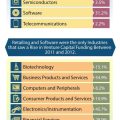Funding Stages For Business Financing – Funding Types and Options
Money is the lifeblood of any business. It is the fuel that any company needs at any stage of its existence. No matter how big it is, no matter how many workers are employed, any venture needs financing to stay operational. In this article, we will go through the different stages of financing and see the different ways businesses obtain their money in their life cycle.
Funding Stages / Business Financing Stages
Seed Funding Stage – this is the very first stage of financing, in which the business may not even be founded yet. This is the money used for actually starting – building the product, making the needed research, and putting all things in motion. These are usually funds from personal savings, crowdfunding, angel investors, etc. This is the riskiest financing stage, because the business may not even exist.
Start-up financing (series A) – This is in many cases the first external financial injection. in this stage, the business is operating and needs money for marketing expenses, more employees, and management staff. The products/services are improved. This type of funding is usually provided by venture capital companies.
Series B (C, D,…) – These are like the series A financing but a second (third, fourth…) round of it. This funding is provided by venture capital firms and angel investors in exchange for equity.
Working Capital Financing – in this stage the company is growing rapidly, and the business is stable this is why usually this type of financing is provided by credit institutions like commercial banks. The company needs money for its daily operations. No investors participate in this stage and no equity is sold for capital.
Mezzanine Financing (bridge stage) – in this stage the business is expanding rapidly and needs funds to do this. The internal sources of money are not enough for growth and the company may issue preferred stock or subordinated bonds. This type of funding is usually provided by investment banks.
IPO (Going public) – This is the last financing stage – when a company makes an initial public offering (IPO) of its common shares. In this case, anyone could become an investor by buying company shares on the market.
It is very important for every company to take advantage of the appropriate type of funding. Many businesses rely only on internal sources of financing, which tremendously limits their potential. Others go for an IPO too early, which limits the amount of public offering financing.
Securing financing for a business can be a daunting and challenging task. Obtaining the necessary funds to launch your business and ensure its growth can be critical to its success. Thankfully, there are numerous avenues available to entrepreneurs looking to secure funding, ranging from traditional loans and venture capital to innovative crowdfunding campaigns.
Some more thoughts on business financing
Personal traditional bank loans are often the first option most entrepreneurs consider. Though they can be difficult to obtain, they may provide competitive terms and more substantial amounts of funding than other sources. Business owners should have excellent credit ratings and strong financial records as well as a well-thought-out proposal (business plan) to present to potential lenders. Additionally, they should expect to be asked for collateral in order to secure the loan.
Venture capital is another way of securing financing for a business. Venture capitalists are usually individuals or funds that invest heavily in promising new ventures with one goal – generating large returns on their investments. In return for providing capital, venture capitalists typically demand board participation and decision-making rights in exchange for taking on some of the risk involved with investing in startups.
Crowdfunding continues to gain popularity as an alternative means of raising funds for business projects. This approach involves setting up a platform that allows individuals or businesses to solicit donations from multiple sources in exchange for equity or rewards such as special project updates or merchandise associated with a specific campaign. Popular crowdfunding sites such as Kickstarter and IndieGoGo have seen tremendous success in recent years due to their ability to quickly attract attention and draw massive sums of funding from backers around the world within days or even hours of launching campaigns online.
No matter what method entrepreneurs decide on, it is essential that they approach financing opportunities with caution and conduct sufficient research prior to signing documents or making any commitments. A thorough understanding of each available funding source is paramount when it comes to ensuring financial stability and success down the road.
We will be glad to hear from you regarding this article. Feel free to drop your comments below. It would be cool to share this article if you liked it. Thanks!







